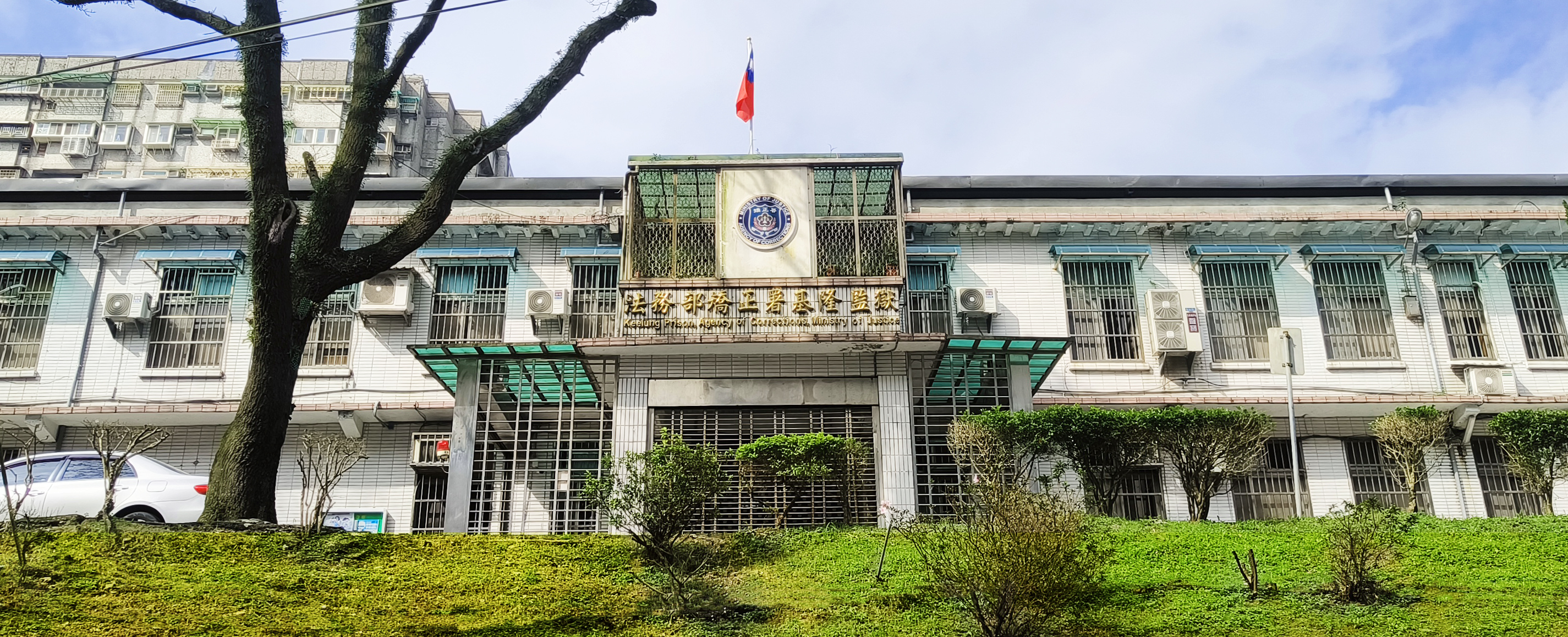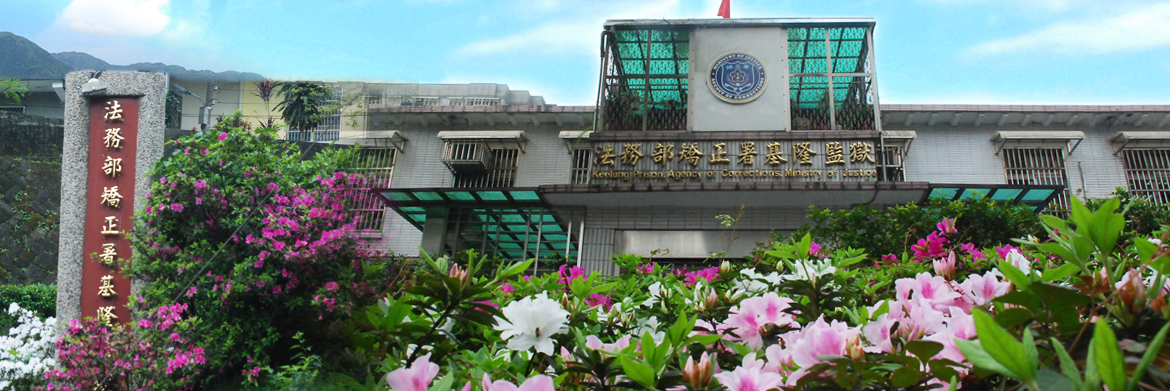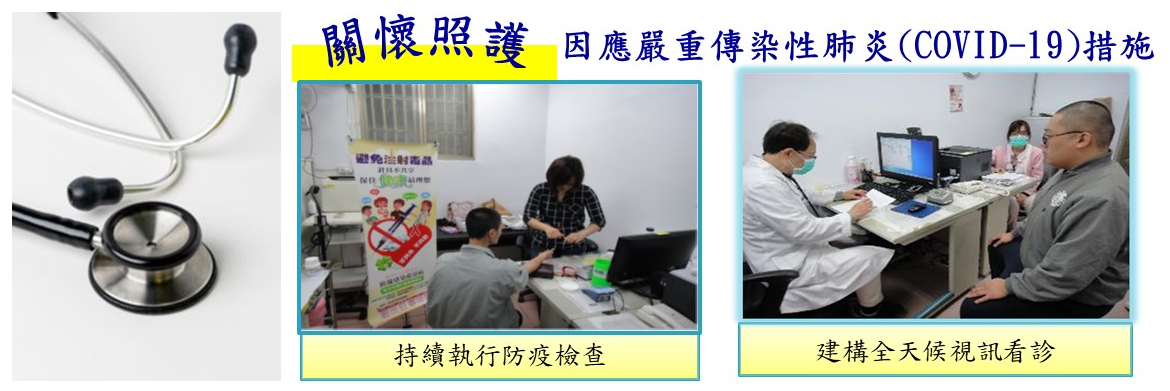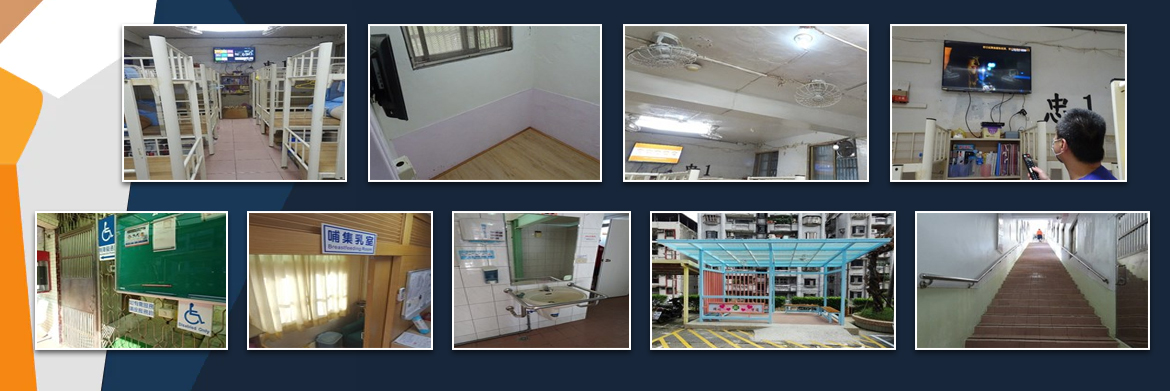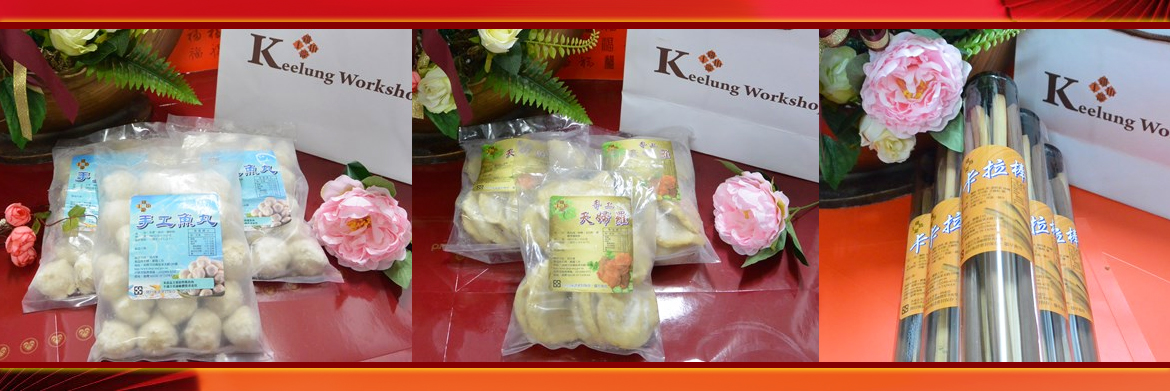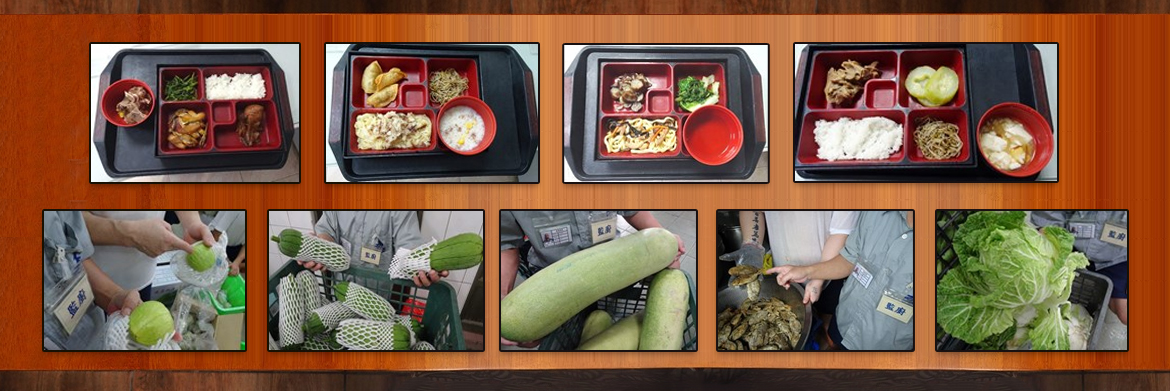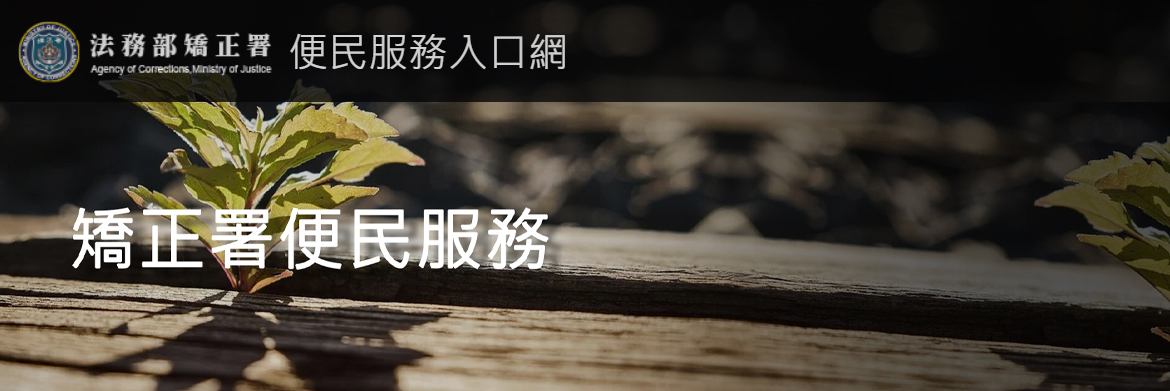- 2025/03 Cultural and recreational activities for interns in March 2025
- 2025/2 Humanistic activities for interns in February 2025
- 2025/1/20 Reception activities, Spring Festival decoration competition
- 2025/1/18 Face-to-face Spring Festival
- 2025/1/14 Spring Festival phone call
- 2025/1/8 2024 Year-end Blessing and Thanksgiving Party
- 2024/12 Cultural and recreational activities for inmates in December
- 2024/12/12 Art Therapy Class Family Tutoring Day
- Inmates in Keelung Prison (Monthly)
- Characteristics of Prisoners (Monthly)
- Type of Prisoners' Crime (Monthly)
- Term of Prisoners' Sentence (Monthly)
- How to apply for a "Certificate of Release from Prison" for a person released from prison?
- How to apply for a "Certificate of Imprisonment" while in detention?
- How to retrieve items or identification documents that were stored during detention?
- Ministry Of eJustice FAQs
- How to arrange a funeral for returning home?
- What are the regulations and restrictions for receiving money sent by family members of detainees?
- Will ex-offenders receive transportation subsidies to return home upon release from prison?
- How to retrieve the detainee's deposit in custody?
- Taiwan Open Government National Action Plan
- National action plan for preventing gender-based violence
- Preventing child and juvenile delinquency
- Promoting organic agriculture
- Sustainably improving pedestrian safety
- Micro-, small and medium-sized enterprise diversified revitalization and development plan
- Achieving excellence in food safety management
- Leading the transition to net-zero buildings
Activity Zone
-
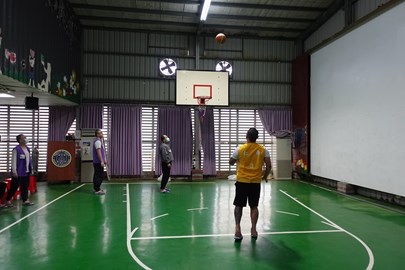 2025/03 Cultural and recreational activities for interns in March 2025
2025/03 Cultural and recreational activities for interns in March 2025On March 13, our prison held a team basketball recreational competition at the Activity Center. A total of 51 inmates participated in the competition. The purpose was to encourage inmates to actively participate in social activities and cultivate sociable and enterprising concepts. The game was conducted in the form of team shooting. The 51 participating inmates were fully engaged, demonstrating excellent teamwork and coordination skills, making the entire game full of fun and vitality. In the end, the Xiaoshe team won and the event ended successfully.
-
 2025/2 Humanistic activities for interns in February 2025
2025/2 Humanistic activities for interns in February 20251. On the 10th, a life education promotion activity was held at the activity center. Teachers Chen Shulan and Li Yuanjue were invited to give lectures. A total of 70 inmates participated. Through music and encouragement, we help inmates relieve negative emotions, establish a "stop loss point", and return to normal life. 2. A nutrition lecture was held at the activity center on the 11th, and nutritionists Xie Yiling and Zhou Qi from the Keelung Nutrition and Health Center were invited to give lectures. A total of 75 inmates participated. Learn about aging through mini games and convey the concept of healthy eating. 3. On the 17th, a financial promotion lecture was held in large and small classrooms. Mr. Lin Kunhuang, the deputy general manager of Yixin, was hired to give a lecture to learn about the latest fraud methods and financial knowledge. A total of 30 inmates participated. 4. On the 26th, a chess-military flag competition was held in large and small classrooms. Through interesting competitions, the inmates’ patience and concentration were cultivated and their loneliness was alleviated. A total of 28 inmates participated.
-
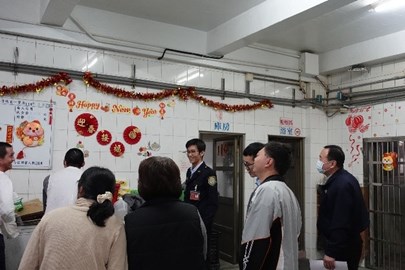 2025/1/20 Reception activities, Spring Festival decoration competition
2025/1/20 Reception activities, Spring Festival decoration competitionThe prison held a Spring Festival decoration competition in the Lunar Year of the Snake. The inmates used their creativity to create New Year's Eve works for the Year of the Snake, helping those inmates who were unable to return home to reunite with their families to ease their homesickness. On January 20, 2025, the team was led by the secretary, and the secretary and department heads served as judges. After scoring, Aishe won the championship.
-
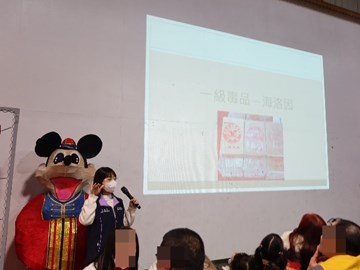 2025/1/18 Face-to-face Spring Festival
2025/1/18 Face-to-face Spring FestivalIn order to reunite the inmates with their families, our prison held a special face-to-face reunion event for the inmates on January 17, 2025. This allowed the inmates to rebuild their family ties and express their blessings and gratitude. We also combined anti-fraud awareness and invited the Keelung City Drug Hazard Center to conduct anti-drug awareness to enhance family members' knowledge of fraud identification and drug prevention. A total of 50 inmates and 88 family members attended.
-
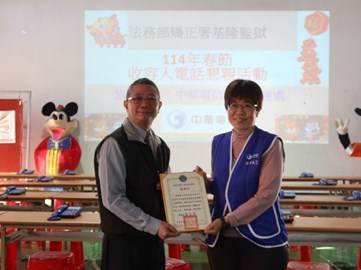 2025/1/14 Spring Festival phone call
2025/1/14 Spring Festival phone callIn order to allow the inmates to convey their blessings to their long-lost relatives on the eve of the Spring Festival, our prison has specially requested the Keelung Operations Office of Chunghwa Telecom Co., Ltd. to assist in adding 32 free telephone lines, and jointly organize the "2025 Inmate Spring Festival Telephone Reunion Event" on January 14, 2025. A total of 232 inmates expressed their longing for their families on the eve of the Spring Festival, hoping to receive their support, encouragement and care and regain the strength to start a new life.
-
 2025/1/8 2024 Year-end Blessing and Thanksgiving Party
2025/1/8 2024 Year-end Blessing and Thanksgiving PartyOur academy and the Buddhist Tzu Chi Foundation of the Republic of China jointly held a year-end blessing and thanksgiving meeting on the afternoon of January 8, 2025. The purpose of this activity is to convey blessings to the shelters, pray for their inner brightness, and bring care and warmth to the society. The event was filled with positive energy and a peaceful atmosphere, allowing every participant to feel the power of Tzu Chi’s great love and humanistic care. A total of 89 inmates attended the event. At the beginning of the activity, all the shelters and Tzu Chi volunteers sang the opening verse together. Tzu Chi volunteers handed out red envelopes of blessings and wisdom to each shelter, conveying New Year blessings. Afterwards, Teacher Cai Tiansheng took the stage to share his life experience, talking about how he got through the lows in life, and encouraging everyone to maintain confidence even when they are in difficult situations. At the final prayer ceremony, volunteers led everyone to light up the heart lamps, symbolizing hope. Let us all express our gratitude to our parents, pray for Taiwan and the world, purify people’s hearts, and create a peaceful society.
-
 2024/12 Cultural and recreational activities for inmates in December
2024/12 Cultural and recreational activities for inmates in DecemberOn December 10, 2024, the prison held a fun memory cultural and recreational activity for elderly inmates in the small classroom. A total of 11 inmates participated in the competition. The prison encouraged the elderly inmates to participate in social activities, educate and entertain them, and reduce the loneliness of serving sentences. On December 25, 2024, the supervisor held a Frisbee throwing contest in the activity center, with a total of 30 inmates participating. The competition tested the throwing accuracy and wrist control of the inmates. The event was full of joy and fun, and the inmate of Renshe won in the end. On December 25, 2024, the prison held a fun ring competition for inmates with disabilities and palliative care in a small classroom. A total of 19 inmates participated. The competition was filled with laughter and applause, which relieved the physical and mental stress of the inmates.
-
 2024/12/12 Art Therapy Class Family Tutoring Day
2024/12/12 Art Therapy Class Family Tutoring DayThe art therapy class in our prison held a family counseling day on the afternoon of December 12, 2024. We invited the family members of the inmates who attended the class to join the course and learn about the conditions of the inmates in prison. The host showed the results of his studies this semester, which amazed the family members. A total of 5 inmates and 5 family members participated.
-
 2024/12/10 Horticulture Therapy Family Tutoring Day
2024/12/10 Horticulture Therapy Family Tutoring DayThe prison cooperates with Xiangri Farm to provide horticulture therapy classes, and holds a family counseling day on the afternoon of December 10, 2024. Families of inmates who attend classes are invited to the prison to participate in the course together, so that family members can understand the conditions of inmates in prison, and let them know the situation of inmates in prison. Hosts have the opportunity to show their families their commitment to change. During the course, the inmates and their families completed the embossed cards together, and the atmosphere was joyful and warm. A total of 5 inmates and 4 family members participated.
-
 2024/12/6 Tzu Chi Reading Club Family Tutoring Day
2024/12/6 Tzu Chi Reading Club Family Tutoring DayThe prison cooperates with the Buddhist Tzu Chi Charity Foundation to organize a Tzu Chi Reading Club, and holds a family counseling day on the afternoon of December 6, 2024. We invite the family members of the inmates to join the class and participate in the class together, so that the family members understand that the inmates are in the prison. situations and provide the host with an opportunity to show their family their determination to change. During the course, the inmates and their families worshiped Buddha together and learned to sing sign language songs. The inmates served tea to their families, and the interaction was touching and warm. A total of 6 inmates and 8 family members participated.
Publicity matters
-
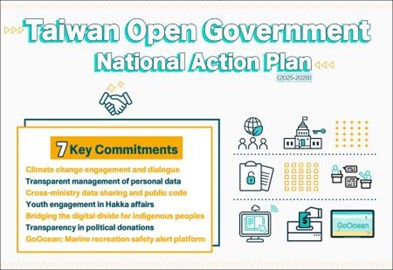 Taiwan Open Government National Action Plan
Taiwan Open Government National Action Plan -
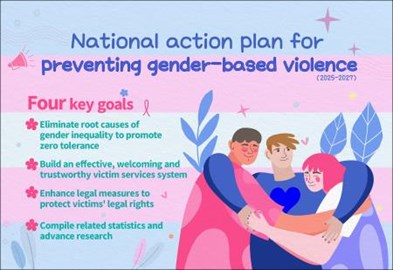 National action plan for preventing gender-based violence
National action plan for preventing gender-based violence -
 Preventing child and juvenile delinquency
Preventing child and juvenile delinquency -
 Promoting organic agriculture
Promoting organic agriculture -
 Sustainably improving pedestrian safety
Sustainably improving pedestrian safety -
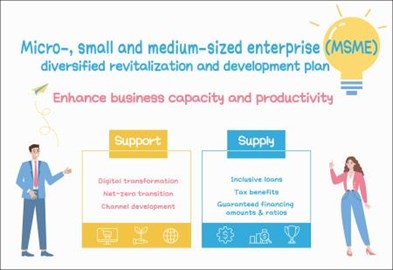 Micro-, small and medium-sized enterprise diversified revitalization and development plan
Micro-, small and medium-sized enterprise diversified revitalization and development plan -
 Achieving excellence in food safety management
Achieving excellence in food safety management -
 Leading the transition to net-zero buildings
Leading the transition to net-zero buildings
Popular products
-
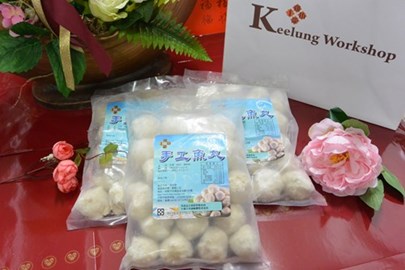 Chicken Cage Workshop - Handmade fish balls
Chicken Cage Workshop - Handmade fish ballsWeight: 600g±10g Price: NT 141/pack
-
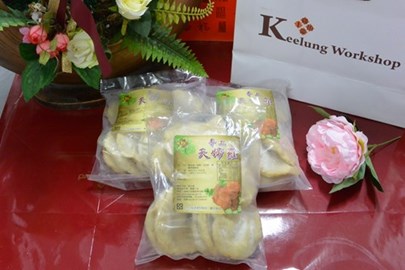 Chicken Cage Workshop - Handmade Tempura
Chicken Cage Workshop - Handmade TempuraWeight: 600g±10g Price: NT 150/pack
-
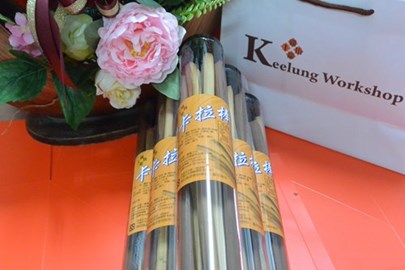 Chicken Cage Workshop - Karaoke Stick
Chicken Cage Workshop - Karaoke StickWeight: 200g±10g Price: NT 85 yuan/can (10 packs)
-
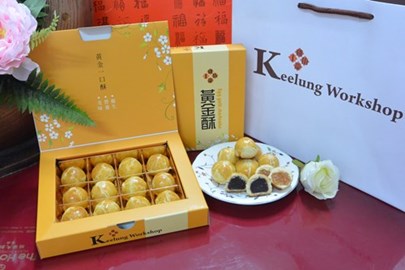 Chicken Cage Workshop - One Bite Crisp Gift Box
Chicken Cage Workshop - One Bite Crisp Gift BoxWeight: 15g±2g/pc Price: NT 110/box (12 packs)
-
 Chicken Cage Workshop - Pineapple Cake Gift Box
Chicken Cage Workshop - Pineapple Cake Gift BoxWeight: 40g±2g/pc Price: NT 200/pack (12 pieces)
-
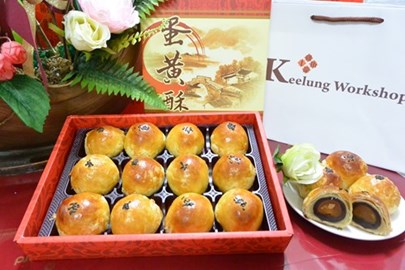 Chicken Cage Workshop - Egg Yolk Crisp Gift Box
Chicken Cage Workshop - Egg Yolk Crisp Gift BoxWeight: 70g±3g/pc Price: NT 320/pack (12 pieces)






